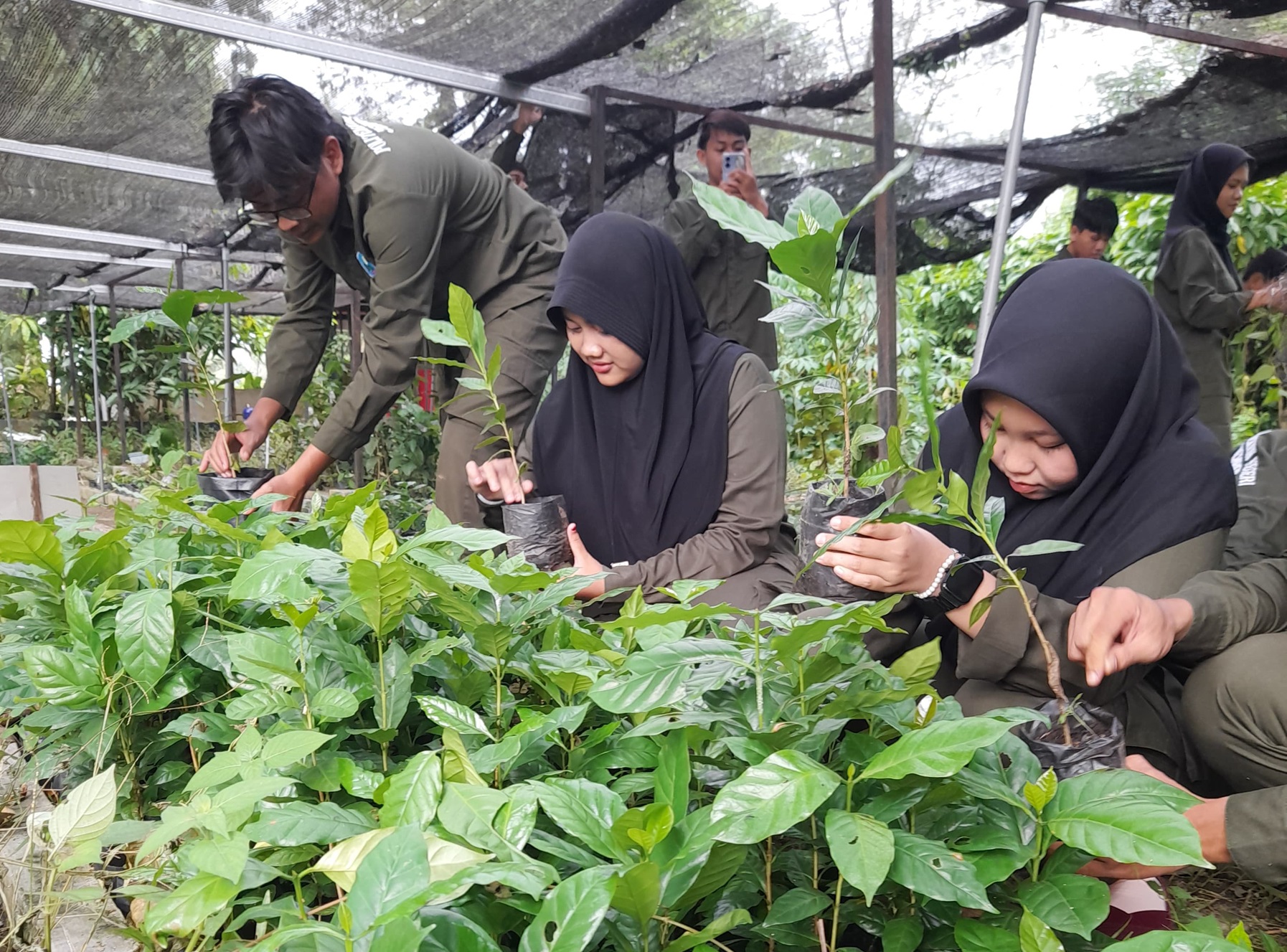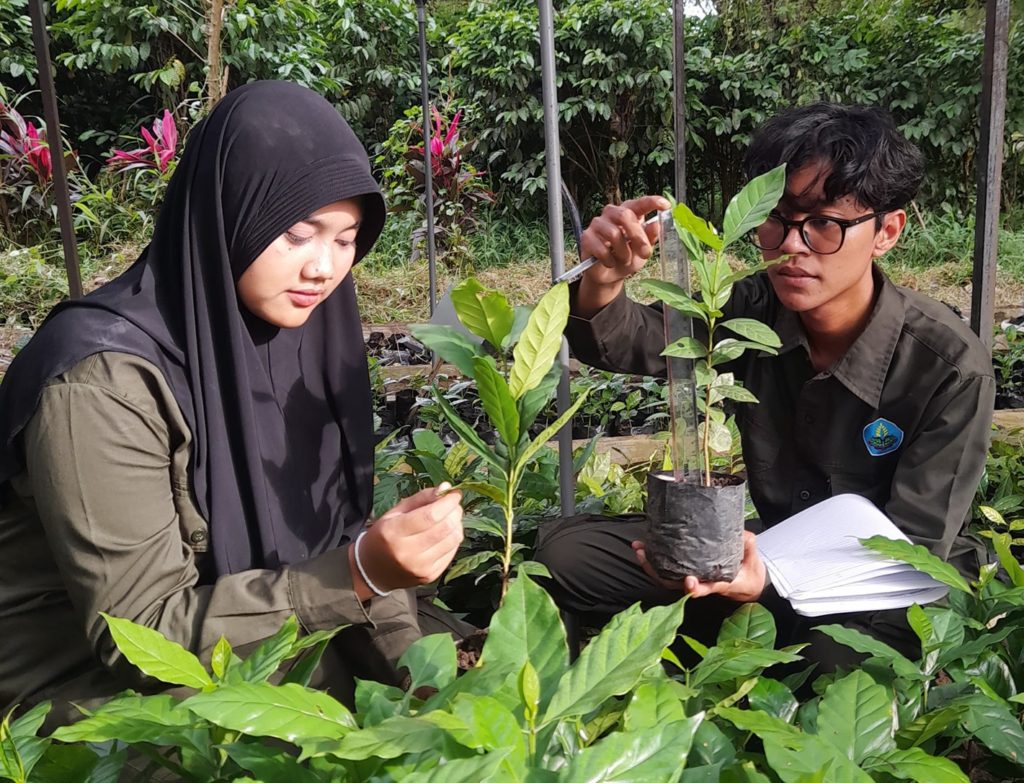

The Coffee Plantation Management Study Program at Politeknik Negeri Jember (Polije) continues to innovate in its teaching methods by implementing Project-Based Learning (PBL). This time, the PBL initiative focuses on “Coffee Seedling Production,” in direct collaboration with the industry. Through this project, students actively participate in the entire process of producing high-quality coffee seedlings, from seed selection, germination techniques, and maintenance to quality control in accordance with industry standards.
Sepdian Luri Asmono, S.ST., M.P., Coordinator of the Coffee Plantation Management Study Program, explained that collaboration with the industry, in this case, Putra Djaja Farm, provides students with real-world experience in facing challenges and opportunities in the coffee plantation sector.
“This collaboration enhances students’ competencies in various aspects, including technical, managerial, and entrepreneurial skills. Additionally, this PBL program encourages innovation in coffee seedling production and strengthens networks between academia and industry, ultimately producing graduates who are ready to compete in the global market,” he stated.
The Coffee Plantation Management Study Program at Politeknik Negeri Jember is known for its practice-oriented education designed to produce highly competent and competitive coffee plantation experts.
“With a PBL-based curriculum, students are not only equipped with theoretical knowledge but are also involved in real projects such as coffee seedling production, plantation management, and post-harvest processing. Collaboration with industry also opens opportunities for internships, research, and extensive career networks for students,” he added.
Students participating in this program receive direct guidance from industry experts with extensive experience in coffee plantation management. At each stage, they gain in-depth knowledge of superior seed characteristics, effective germination methods, and maintenance techniques to improve plant quality. Additionally, they are provided with insights into marketing strategies and business management, enabling them to develop their own enterprises in the future.
“In addition to gaining valuable experience, this PBL initiative also serves as a platform for students to engage directly with the industry. We hope that this experience will significantly enhance their employment prospects after graduation,” he explained.
In the long term, programs like this are expected to contribute to improving the quality of national coffee production. With more graduates possessing high competencies in the coffee plantation sector, Indonesia’s coffee industry can continue to grow and compete in the global market.
“Polije remains committed to continuously innovating in vocational education to produce graduates who are well-prepared to face the challenges of the future plantation industry,” he concluded.
With initiatives like this, Polije students are expected to be better prepared for the workforce, particularly in the coffee plantation sector, while also contributing to enhancing the quality of national coffee production. This effort is also part of a broader strategy to increase the competitiveness of Indonesia’s coffee industry at the international level, especially as global demand for high-quality coffee continues to rise. (rda)